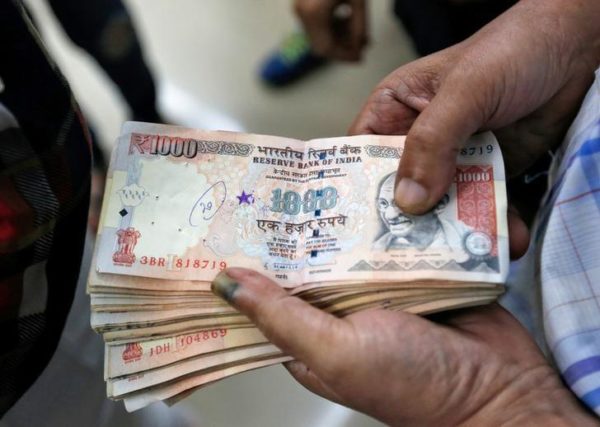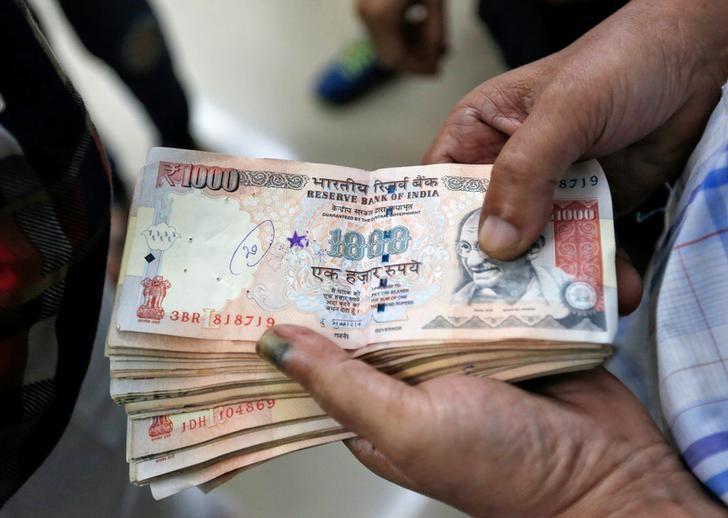According to Indian Finance Minister Arun Jaitley, “honest people” have no need to worry about a decision to withdraw 1,000 and 500 rupee notes from circulation.
Arun Jaitley said the move would flush out tax evaders, adding that all old notes deposited in banks would be subjected to tax laws.
The surprise move, announced on November 8, is part of a crackdown on corruption and illegal cash holdings.
The announcement was met with shock in India.
Media described the move variously as a “surgical strike” on tax evaders in India’s overwhelmingly cash-based economy and a “big bang note”. The banknotes declared illegal tender represent 85% of cash in circulation in India.

Arun Jaitley said that the move would also help India move towards a cashless economy, saying that farmers could “now keep their money in banks”.
He added that new 2,000 (about $30) and 500 rupee denomination notes to replace those removed from circulation would be injected into the economy over the next “three to four weeks”.
On November 8, there were long queues at ATMs as people tried to withdraw 100 rupee notes, which are still legal.
Banks and ATM machines were shut on November 9.
The most affected are likely to be small traders, vendors and laborers but newspapers were quick to point out that India’s wedding season, due to start in a few days, will also be hit hard.
“Black money and corruption are the biggest obstacles in eradicating poverty,” PM Narendra Modi said in his address to the nation on November 8.
The prime minister said the move would “cause some hardship” but asked people to “ignore” it, calling the step a “celebration of honesty”.
People will be able to exchange their old notes for new ones at banks over the next 50 days but they stopped being legal tender at midnight on November 8. There are also going to be limits on cash withdrawals from ATMs starting on November 10.
The move is designed to lock out money that is unaccounted for – known as “black money” – which may have been acquired corruptly, or be being withheld from the tax authorities.
Finance Secretary Shaktikant Das warned people with large amounts of hidden cash that banks would closely monitor the exchange of old notes for new ones.
The 500 and 1,000 rupee notes are the highest denomination notes in India and are extremely common in India. Airports, railway stations and hospitals will only accept them until November 11. People will be able to exchange their money at banks between November 10 and December 30.
Government guidelines say it is possible to exchange 4,000 rupees – but it is not clear if this is per day or in total. If there is a legitimate explanation for the cash, the authorities say, it will be possible to exchange it.
